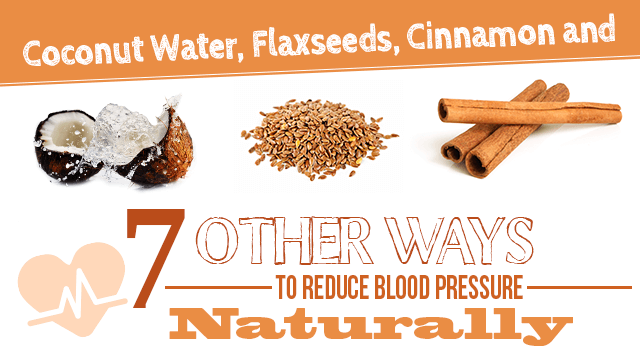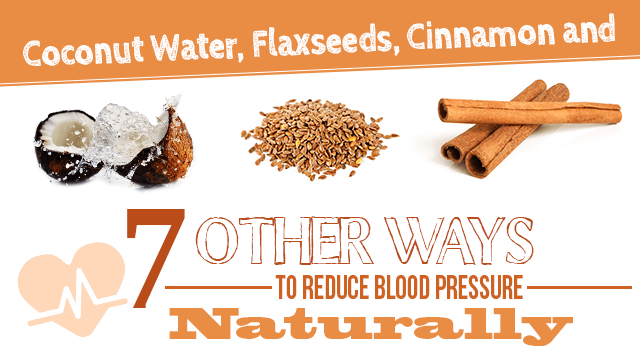
High blood pressure is one of the most pervasive and concerning health problems that exists today, yet also one of the most preventable. While conventional literature maintains that the cause of high blood pressure is usually unknown, scientific research clearly shows that it is largely caused by poor diet, lifestyle and self-care practices, and can almost always be managed or reversed by improving these parameters.
With about one-third of adult Americans currently living with high blood pressure, and another third exhibiting signs of pre-hypertension, the message of natural healing is clearly an important and necessary one. Close to $50 billion is burned up annually by this self-inflicted, reversible condition.
While improving nutrition and daily habits should be the first recourse in the reversal of high blood pressure, incorporating natural supplements and herbal remedies can also be an important part of a holistic treatment regime. These gentle yet powerful options work in synergy with the body’s natural efforts toward healing and homeostasis, rather than forcing change and leaving wreckage in the wake, as pharmaceuticals often do.
While it’s vital to consult with a trusted practitioner before making any changes that could affect your health, we encourage you to investigate herbal and natural treatment options. Alternative natural options may be much more beneficial in the long run and are often just as effective as conventional medications.
Here are the best herbs for balancing blood pressure naturally.
Hibiscus
This beautiful tropical flower is commonly used as a natural blood pressure reducer by traditional cultures. Making a tea with the blossoms can provide a mild diuretic effect, drawing sodium from the bloodstream and decreasing blood volume as a result.
Hibiscus also affects hormones in a way that is similar to common blood pressure drugs called ACE inhibitors. ACE stands for angiotensin converting enzyme, which is a substance that regulates fluid balance within the body. Prescription drugs inhibit this enzyme dramatically, while hibiscus has a gentler, similar effect. This results in relaxing of the blood vessels so that blood pressure lowers.
Hibiscus tea can be made by steeping 1–2 teaspoons of dried flowers in just-boiled water. Honey and lemon can be added for taste. This mixture can also be used as iced tea.
Coconut water
While there hasn’t been much scientific research done on coconut water as yet, an impressive body of anecdotal evidence supports the use of this natural remedy for high blood pressure. Coconut water contains potassium and magnesium, minerals that are important for the proper functioning of muscles, including the heart. Drinking a glass of pure coconut water once or twice daily is all that is needed to take advantage of the benefits.
Flaxseed
Flaxseeds and flaxseed oil are rich in alpha-linolenic acid, which belongs to the group of omega-3 fatty acids. Several studies support the use of these healthy fats against hypertension and cardiovascular disease. They are antioxidants and they reduce inflammatory markers. Try adding one to three teaspoons of ground flaxseed meal to your daily diet by mixing it into healthy baked goods or burgers. You can also combine it with a gluten-free crumb coating for chicken.
Cinnamon
Consuming cinnamon daily has many health benefits, including balancing blood sugar and reducing blood pressure. We know cinnamon as an ingredient in unhealthy baked goods, but what about adding it to oatmeal, coffee or curries?
Cat’s Claw (Uncaria tomentosa)
This Amazonian herb contains tannins and flavonoids that dilate blood vessels and provide a mild diuretic effect. Modern medical studies have confirmed the wisdom of the traditional use of this herb as a remedy for hypertension. The best way to use it is to make a tea by simmering 1–2 tablespoons of the dried herb in two cups of water for about 45 minutes.
Cardamom
A study published in the Indian Journal of Biochemistry and Biophysics reported that three grams of cardamom administered daily for three months significantly improved blood pressure figures in patients with primary hypertension. The spice was also able to break down blood clots, which can be dangerous for health. To use this warming spice, try making a tea with ginger, cardamom, cinnamon and honey.
Garlic
Garlic has been well studied for its ability to lower blood pressure naturally. In fact, research indicates that a dosage providing 1.8 milligrams of the active compound allicin was able to reduce blood pressure by 10 percent after a period of 12 weeks.
Consuming fresh garlic in your diet is always a good idea; however garlic taken in a tablet form may be more effective medicinally. This allows the compounds to bypass the stomach acid, which may improve efficacy.
Hawthorn berry
These berries are rich in plant nutrients called flavonoids — specifically oligomeric procyanidins and quercetin. These compounds have been shown to benefit many different cardiovascular and circulatory conditions, including hypertension. Hawthorn berries can be used as a tea or in powdered form, which serves to widen the blood vessels to reduce blood pressure.
Celery and celery seed
A Chinese study found that celery, along with its juice and seeds, can be used as an effective treatment for high blood pressure. Both systolic and diastolic blood pressure were improved in 14 out of 16 patients participating in the study. Try consuming fresh celery juice made at home in your blender or juicer.
Ginger
 Although scientific studies on humans are lacking, animal studies have shown that ginger is very effective in moderating blood pressure. It acts to improve blood circulation and relaxes the tiny muscles that surround blood vessels. Ginger can be consumed as a tea — simply grate a thumb-sized piece of the fresh root and squeeze the juice into just-boiled water. Also add fresh ginger to dishes such as stir-fries or curries.
Although scientific studies on humans are lacking, animal studies have shown that ginger is very effective in moderating blood pressure. It acts to improve blood circulation and relaxes the tiny muscles that surround blood vessels. Ginger can be consumed as a tea — simply grate a thumb-sized piece of the fresh root and squeeze the juice into just-boiled water. Also add fresh ginger to dishes such as stir-fries or curries.
Salt and blood pressure
It’s important to note that excluding salt from your diet is neither a necessary nor a healthy way to reduce blood pressure. Natural, unprocessed sea salt provides vital minerals that we would literally die without. In fact, adding sea salt to homemade food has been shown to provide only six percent of an average person’s salt intake.
What is important, though, is to reduce or eliminate processed foods from your diet. These foods contain massive amounts of sodium, without any complimentary minerals, which overwhelms the body and can cause hypertension.
Natural sea salt and Himalayan salt contain other minerals along with sodium, which results in a mixture that provides the body with many trace elements for good health. There is no need to consume a bland, salt-less diet if you purchase good quality “whole” salt rather than refined table salt.
Don’t let this preventable chronic condition lead you to further suffering down the road. Take control of your blood pressure today with an improved diet, regular exercise, and natural remedies!
— Liivi Hess
Liivi is an Integrative Nutrition Health Coach and is training to become a doula. She inspires women to find peace and personal power by taking control of health and fertility naturally. Liivi‘s passion is ancestral nutrition and primal lifestyle design. She and her partner Will live between Toronto, Canada and Queenstown, New Zealand.
Sources:
http://apjcn.org/update%5Cpdf%5C2006%5C1%5C107%5C107.pdf
http://www.sciencedirect.com/science/article/pii/S0960852410001793
http://ajh.oxfordjournals.org/content/14/9/971.short
http://www.ncbi.nlm.nih.gov/pmc/articles/PMC3210006
http://www.mayoclinic.org/diseases-conditions/high-blood-pressure/in-depth/high-blood-pressure/art-20046974
http://www.ncbi.nlm.nih.gov/pmc/articles/PMC3096270
http://hyper.ahajournals.org/content/52/5/801.full
http://www.nature.com/ijo/journal/v32/n1/full/0803662a.html
http://www.heart.org/HEARTORG/Conditions/HighBloodPressure/UnderstandYourRiskforHighBloodPressure/Understand-Your-Risk-for-High-Blood-Pressure_UCM_002052_Article.jsp

